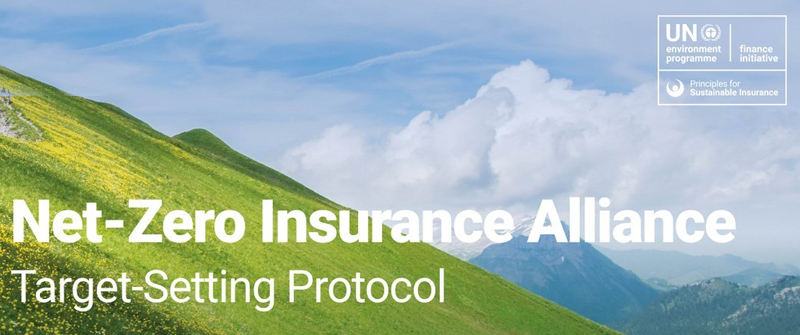
Developing a Net Zero Insurance Strategy in the Era of Climate Change
Climate change has become a prominent topic in the public sector, with the UN setting regulations for achieving net-zero goals across all industries. The Net-Zero Insurance Alliance (NZIA), a significant collaboration between the UN and the global insurance industry, is leading the way in this initiative. However, the journey hasn't been smooth for all participants, as seen in the rise and fall of the net-zero insurance efforts of Allianz. In this post, we'll dive into the lessons learned from the challenges faced and explore strategies for building a successful net-zero insurance approach considering the growing trend.

The Rise and Fall of the Net Zero Insurance Alliance
Launched two years ago, the NZIA, convened by the UN Environment Programme, has been instrumental in developing foundational concepts and frameworks for decarbonizing insurance and reinsurance portfolios. 2
Each company that chooses to be a member of the NZIA unilaterally and independently decides on the steps on its path toward net zero. NZIA provides a range of methodology options to support individual NZIA members’ progress towards their net-zero commitments. Under the protocol launched in 2023, NZIA members committed to disclosing emissions in their underwriting portfolios by mid-2023 and setting initial concrete decarbonization targets for 2030.4. Members must specify how they plan to achieve sustainable underwriting portfolios. [2]
Despite the collective efforts, several major insurers, including Swiss Re, Munich Re, Zurich Insurance, and Hannover Re, have exited the alliance. This departure poses a challenge to the UN's efforts to leverage financial institutions for emissions reduction. Insurers leaving the NZIA emphasize that their commitment to addressing climate change remains unchanged. Allianz, for instance, states it will adhere to its climate goals independently of the alliance. SCOR, another insurer, announced its exit alongside new climate and energy transition policies without providing a specific reason.
The Relationship Between Insurers and ESG
Within the net-zero alliance, some companies choose to stay, while others depart. Portfolio emissions transparency and target setting vary globally, with a focus primarily on European insurers and NZIA members. Despite the varying perspectives, the transition to a net-zero economy presents growth opportunities for insurers worldwide.
The NZIA represents broad industry support, but nuanced perspectives exist. Some insurers are skeptical about reducing exposure to emissions-intensive sectors, questioning the profitability of covering green sectors. If covering high-emission sectors is profitable, some insurers may act opportunistically. The attention on emissions related to insurers' underwriting portfolios has gained momentum recently, especially since the launch of the NZIA net-zero target-setting protocol in January 2023. [3]

The underlying influences remain threefold: financial, legal, and political. In the financial industry, the exit of so many of the world's biggest insurers is a blow to U.N.-led efforts to harness the power of coalescing financial institutions to try and drive emissions lower. However, legal experts suggest it would be difficult to make a legal case against companies collaborating on climate change through an alliance. The political climate in parts of the United States has made insurers particularly sensitive to such accusations. Therefore, companies that remain in the alliance have fewer legislation concerns.
Building a Net Zero Insurance Strategy in the New Landscape
Those companies that take early steps toward technologies and sectors that support the net-zero transition are likely to generate a first-mover advantage—just as insurers that built early capabilities in renewable energies are now leading the market. To navigate this changing landscape, insurers can follow a structured approach:
Initiation: Developing an accurate underwriting portfolio emissions baseline poses challenges due to historical data uncertainties. In November 2022, the Partnership for Carbon Accounting Financials (PCAF) published standards for assessing emissions in commercial and retail motor segments.
Expectation: Insurers should set evidence-based targets for underwriting portfolio emissions. The NZIA suggests a 43% reduction by 2030 to align with the Paris Agreement. Differentiating targets by sector and subsector (commercial) or line of business (retail) is essential.
Integration: Incorporate emissions perspective and decarbonization targets into relevant business processes to transition the portfolio onto a credible net-zero pathway. This involves understanding emissions intensity, shifting portfolios toward climate-friendly clients, and developing insurance products for those clients. Collaborative efforts between sales, underwriting teams, and distribution partners are crucial. This step also emphasizes the importance of engaging with clients on decarbonization plans and sustainability strategies.
Implementation: Annual measurement of insurance portfolio emissions is crucial for effective decarbonization. Insurers need to continuously track progress against targets and be ready to take corrective action. Adjustments can include shifting focus within sectors, growing in low-emissions sectors, and engaging with individual clients to align coverage decisions with decarbonization targets. Regular discussions during the annual renewal process ensure a proactive approach to achieving decarbonization goals.
By following these steps, insurers can navigate the complexities of developing a net-zero insurance strategy and contribute to the global efforts in combating climate change.
SOURCES:
Subscribe to Our Newsletter
Get the latest insights about Global solutions for leading insurers on your email





